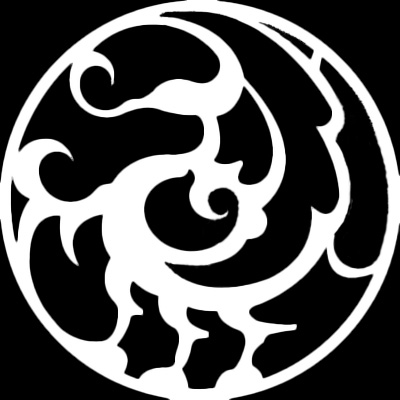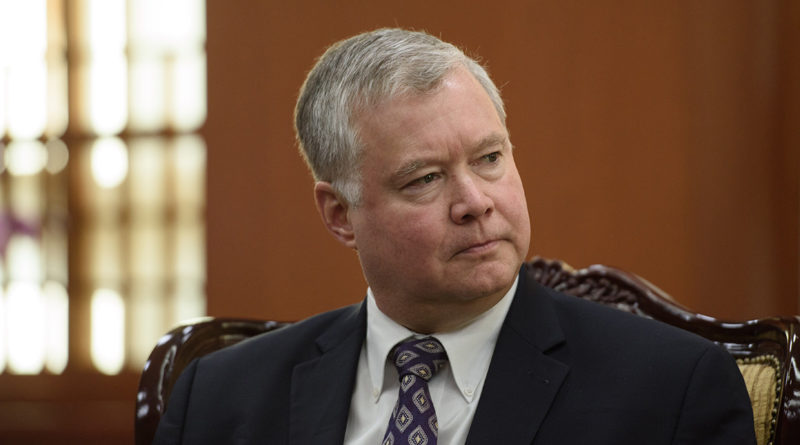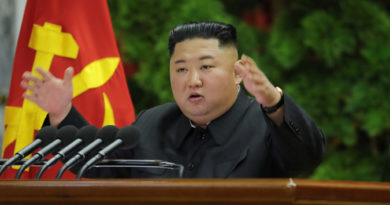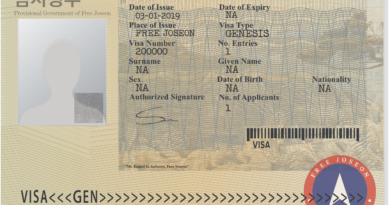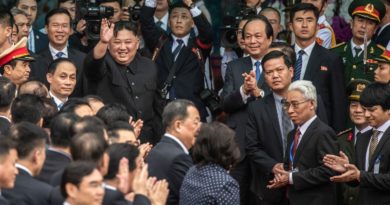US and North Korean Diplomats in China
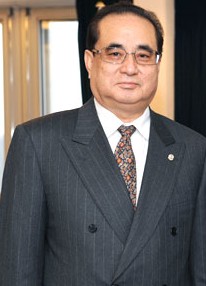
The US embassy in the PRC confirmed in a statement to the South China Morning Post that US special representative for North Korea, Stephen Biegun, is in Beijing “to continue US-China coordination on policies related to North Korea.” Interestingly, chairman of the Foreign Affairs Committee of the Supreme People’s Assembly of the DPRK, Ri Su Yong, was also spotted arriving in Beijing on 26 March. Ri was accompanied by the ambassadors to the PRC and Russia (Ji Jae Ryong and Kim Hyong Jun respectively) who returned to Pyongyang on 20 March. The ambassadors’ return to Pyongyang may have been a consequence of DPRK encryption key compromise from the 22 February Madrid raid — resulting in a need for face-to-face communications.
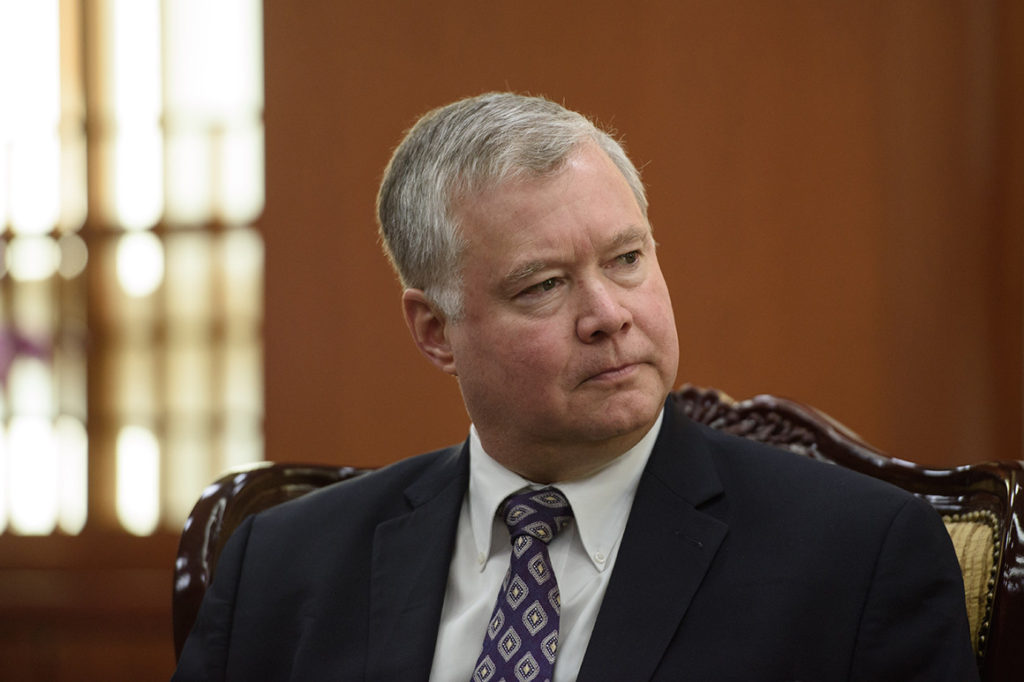
Biegun’s trip to the PRC comes after the Trump Administration’s confusing messaging regarding sanctions prompted the DPRK to announce they were withdrawing from Kaesong on Friday, only to return on Monday. It would appear that the Trump Administration has no appetite for sanctions enforcement, and the pro-engagement faction within the administration has received the greenlight to explore diplomacy with the North Koreans. Naturally, the Chinese have been enlisted to unofficially bring the two sides together in a throwback to Bush era negotiations which ultimately ended with the North Koreans reneging and expanding WMD capabilities.
Chinese Considerations
An increased Chinese role in DPRK negotiations may provide the PRC with additional leverage in the extended US-PRC trade negotiations, with US trade representative Robert Lighthizer and Treasury Secretary Steven Mnuchin set to visit Beijing on 28 March. These negotiations will be conducted in an environment where two US warships traversed the Taiwan Strait on 24-25 March and Taiwan submitted a formal request to purchase over 60 F-16 fighter jets. Despite those developments, the ruling Taiwanese Democratic Progressive Party (DPP) suffered a major defeat in the last local elections to the KuominTang (KMT), perhaps an indicator of next year’s presidential elections result.
Korean Considerations
As I have written previously, the current Moon Administration is a continuation of the Jusapa Roh Administration that views the US as an obstacle to inter-Korean reconciliation. The ruling Minjoo Party overwhelmingly won mayor and governor elections in 2018 and currently holds a plurality of seats in the National Assembly. However, National Assembly elections will take place in April of next year and Moon’s popularity has been decreasing amid scandals, a weak economy, and the failure of inter-Korean negotiations. President Moon’s refusal to correct course on the economy indicates that he will continue to push the Pyongyang question ahead of the 2020 elections.
Outlook for the US
The United States is stuck between a rock and a hard place with regards to the ROKUS alliance, PRC, and DPRK policy. The ROK should serve as an important pillar in the US, Japan, and ROK trilateral security framework against the DPRK threat. However, the ROK ruling party has decided to forego the 2015 so-called “Comfort Women” agreement with Tokyo, proposed “war crime” stickers on Japanese products, and demanded reparations for damages caused by the pivotal Incheon Landing operation during the Korean War, among other provocations. The Moon Administration has likewise refused to join the US and Japan in balancing against Chinese power by refusing to support a “free and open Indo-Pacific region.” Earlier this year, President Moon nominated Kim Yeon Chol — a critic of DPRK sanctions and the THAAD deployment — for the position of Unification Minister underscoring his administration’s view of DPRK, PRC, and US relations.
My assessment is that the PRC holds the keys to Northeast Asia at this time. This situation will be further exacerbated by KMT and Minjoo Party victories in the 2020 elections for their respective countries. However, the Trump Administration — or Congress if the administration fails to act — must stand firmly opposed to the human rights abuses and nuclear weapons program of the DPRK. We must learn from our past mistakes and refuse to provide sanctions relief without reciprocal concessions from the Hermit Kingdom, no matter what the Moon Administration says. And if the ruling party of the ROK decides to continue violating UNSC sanctions, perhaps the time has come to sanction them as well.
